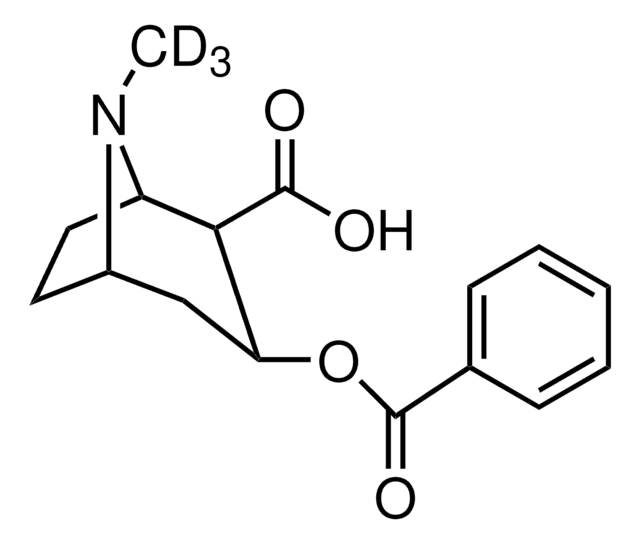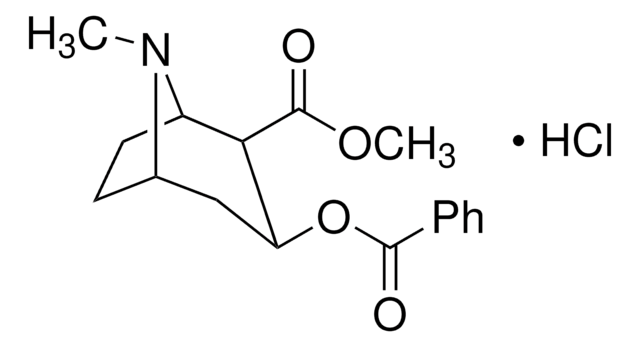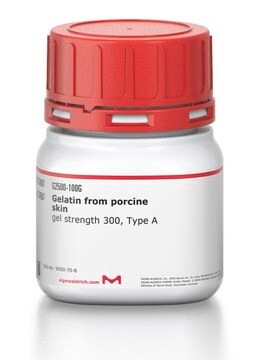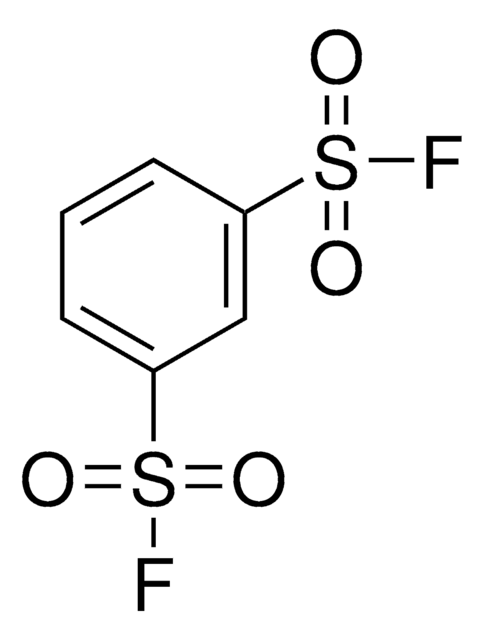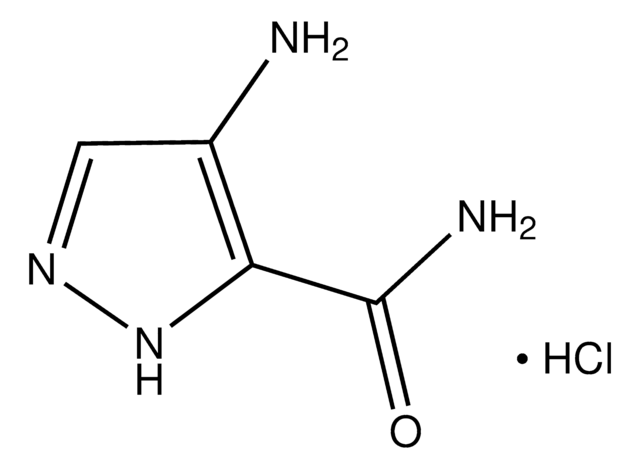Wichtige Dokumente
SML2163
HPN-07
≥98% (HPLC)
Synonym(e):
2, 4-Disulfonyl PBN, 2,4-Disulfophenyl-N-tert-butylnitrone, ARL 16556, CPI 22, Cerovive, Disodium 4-[(tert-butyl-imino) methyl]benzene-13-disulfonate N-oxide, Disufenton sodium, NXY-059, Nxy 059, OKN-007, OKN007, Oklahoma nitrone-007
About This Item
Empfohlene Produkte
Assay
≥98% (HPLC)
Form
powder
Farbe
white to beige
Löslichkeit
H2O: 2 mg/mL, clear
Lagertemp.
−20°C
SMILES String
[O-]/[N+](C(C)(C)C)=C\C(C=CC(S([O-])(=O)=O)=C1)=C1S([O-])(=O)=O.[Na+].[Na+]
InChI
1S/C11H15NO7S2.2Na/c1-11(2,3)12(13)7-8-4-5-9(20(14,15)16)6-10(8)21(17,18)19;;/h4-7H,1-3H3,(H,14,15,16)(H,17,18,19);;/q;2*+1/p-2
InChIKey
XLZOVRYBVCMCGL-UHFFFAOYSA-L
Biochem./physiol. Wirkung
Lagerklassenschlüssel
11 - Combustible Solids
WGK
WGK 3
Flammpunkt (°F)
Not applicable
Flammpunkt (°C)
Not applicable
Analysenzertifikate (COA)
Suchen Sie nach Analysenzertifikate (COA), indem Sie die Lot-/Chargennummer des Produkts eingeben. Lot- und Chargennummern sind auf dem Produktetikett hinter den Wörtern ‘Lot’ oder ‘Batch’ (Lot oder Charge) zu finden.
Besitzen Sie dieses Produkt bereits?
In der Dokumentenbibliothek finden Sie die Dokumentation zu den Produkten, die Sie kürzlich erworben haben.
Unser Team von Wissenschaftlern verfügt über Erfahrung in allen Forschungsbereichen einschließlich Life Science, Materialwissenschaften, chemischer Synthese, Chromatographie, Analytik und vielen mehr..
Setzen Sie sich mit dem technischen Dienst in Verbindung.